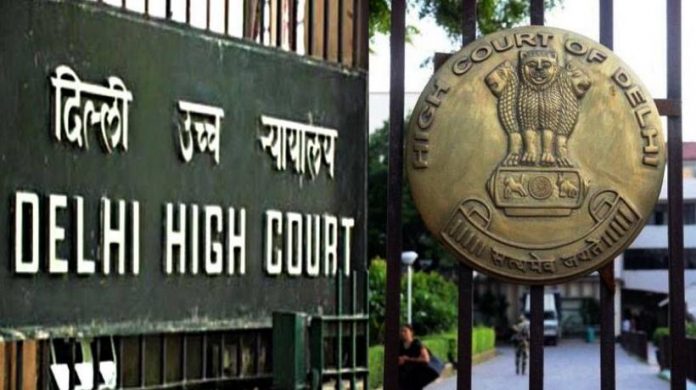This article has been written by Saloni Parag Manjrekar, pursuing a Certificate Course in Arbitration: Strategy, Procedure and Drafting from LawSikho.
Table of Contents
Introduction
An arbitration agreement is considered to be the genesis of any arbitral proceedings. Out of various requisites of such arbitration agreement, the requisite of an arbitration agreement to be in writing forms the substructure of any arbitral proceedings. Reducing the arbitration agreement in writing aids in formulating the procedural aspects of the proceedings by vesting the powers in a mutually appointed tribunal. It not only vests powers or gives jurisdiction to the arbitral tribunal but also limits the jurisdiction of the courts. Hence, it is important to have an arbitration agreement in writing and the same importance is ascertained in this article by analyzing a case law called Mother Boon Foods Pvt Ltd. versus Mindscape One Marketing Pvt Ltd. 
Mother Boon Foods Pvt Ltd. versus Mindscape One Marketing Pvt Ltd
The above-captioned matter was decided in the Hon’ble High Court of Delhi by the Hon’ble Justice Prathiba M. Singh on August 27, 2018.
Facts of the case
Mother Boon Foods Pvt Ltd (the “petitioner”) is a company incorporated in 2012 and is engaged in foodstuff manufacturing. Whereas Mindscape One Marketing Pvt Ltd (the “respondent”) is a company incorporated in 2010 and is engaged in the manufacturing and marketing of bread. Both the parties entered into a manufacturing agreement (“Agreement”) on July 25, 2012. According to the agreement dated July 25, 2012, the respondent appointed the petitioner for manufacturing and packaging bread as per the specifications and requirements of the respondent. The commercial production of the bread commenced in July 2013. However, disputes started surfacing between the petitioner and the respondent which eventually led to the termination of the agreement dated July 25, 2012, vide letter dated March 14, 2014. The petitioner requested to conduct a meeting to amicably settle the dispute. However, the parties could not reach a solution despite conducting a meeting on April 1, 2014.
In the light of the above, the petitioner addressed a letter dated April 2, 2014, to the respondent wherein the petitioner raised several financial claims against the respondent. To the petitioner’s dismay, the respondent denied all the financial claims raised by the petitioner and invoked the arbitration clause by appointing an arbitral tribunal consisting of three members. The arbitral tribunal issued its first notice to the petitioner and the respondent on April 16, 2014, pursuant to which the respondent submitted its statement of claims on May 7, 2014. However, the petitioner addressed a letter dated June 16, 2014, challenging the constitution of the arbitral tribunal. Since the petitioner did not appear before the arbitral tribunal despite the tribunal issuing several notices to the petitioner, the arbitration proceedings were carried out ex-parte, and an impugned award dated July 15, 2014, was passed by the arbitral tribunal. Therefore, the petitioner has filed this petition under Section 34(2) of the Arbitration and Conciliation Act, 1996, to challenge the award dated July 15, 2014, passed by the arbitral tribunal.
Submissions on behalf of the petitioner
The learned counsel appearing on behalf of the petitioner raised contentions that, Clause 17.2.2 of the agreement dated July 25, 2012, undoubtedly stipulates that the respondent shall appoint a sole arbitrator for arbitration. Therefore, the appointment of an arbitral tribunal consisting of three members being contrary to the agreement dated July 25, 2012, and provisions of the Arbitration and Conciliation Act, 1996 is invalid.
In order to ascertain its stand, the learned counsel for the petitioner placed reliance on the case-law of M/S Prime Industries Ltd. versus SEIL Ltd.& Anr In this case, the respondents entered into an agreement dated June 10, 1994, with the appellant in respect of its manufactured products of Vanaspati and Vegetable oils. A dispute relating to minimum lifting quantity arose between the parties in the first two years of the agreement, resulting in the invocation of an arbitration clause. As per the arbitration clause, an arbitrator was to be appointed by the Indian Council of Arbitration (“ICA”), New Delhi. Hence the appellant addressed a letter to the ICA. The ICA stated that according to its rules the claim amount of Rs. 6,81,12,565/- would be resolved by an arbitral tribunal consisting of three arbitrators unless the parties agree otherwise. Thus, considering the arbitration clause, the appellant went ahead with the appointment of a sole arbitrator. The respondents moved an application to the arbitrator stating that its appointment is contrary to the arbitration clause as the clause clearly stipulates that appointment should be done by the ICA and as per the ICA rules the present claim requires the appointment of a three-member tribunal. However, the arbitrator struck down the application of the respondents by stating that the arbitration clause nowhere mentioned the dispute to be determined as per the ICA rules, rather it only stated that an arbitrator should be appointed by the ICA. The respondents, thus, went ahead and challenged the arbitral award on the same grounds and obtained an order from the Delhi High Court of setting aside the arbitral award.
Therefore, the appellant filed an appeal challenging the order passed by the Delhi High Court of setting aside the arbitral award. On perusal of the arbitration clause in the agreement dated June 10, 1994, the Hon’ble Delhi High Court set aside the previous order of setting aside the arbitral award and allowed the appeal by concluding that the reasoning given by the arbitrator while striking down the application of the respondents was correct and the appointment of a sole arbitrator by the ICA was accurate as the same was prescribed in the arbitration clause. Thus, the said case law held that the will of the parties as set in the written arbitration agreement shall prevail.
Submissions on behalf of the respondent
The learned counsel appearing on behalf of the respondent asserted that an arbitral tribunal consisting of three members was appointed as the same was insisted by the petitioner during the settlement meeting and in order to keep the proceedings fair. The learned counsel for the Respondent argued that it considered the opinion of the petitioner and decided to appoint three arbitrators on a safer side rather than appointing a sole arbitrator.
In order to ascertain its standpoint, the learned counsel for the respondent, placed reliance on the case-law of Indian Oil Corporation & Ors. Versus Raja Transport (P) Ltd. while arguing that merely because the Respondent constituted the arbitral tribunal, it did not mean that the Petitioner could interfere with the same. However, the Court averred that the Respondent had wrongly relied on the case-law of Indian Oil Corporation & Ors. Versus Raja Transport (P) Ltd. as the facts of the same were completely different from the present case.
Issue
Whether an oral request of appointing the arbitral tribunal constituting three members overrides the existing arbitration agreement that is in writing?
Discussion held by the Court
The Hon’ble Delhi High Court confirmed that the arbitration agreement dated July 25, 2012, clearly stipulates that the arbitration clause demands the appointment of a sole arbitrator by the Respondent. It stated that as per the Arbitration and Conciliation Act, 1996, an arbitration agreement should always be in writing. It further added that any oral agreement or demand cannot supplant the arbitration clause which is in writing. The Hon’ble Court expressed that though such appointment was done by the Respondent to be on a safer side and on the request of the Petitioner, there was nothing on record that proved that the Petitioner had actually demanded the appointment of an arbitral tribunal consisting of three members. In contrast, the objection of the Petitioner with the constitution of the arbitral tribunal was clear from the letter dated June 16, 2014, despite which the arbitral tribunal went ahead with the matter. The Hon’ble Court, thus declared that the Petitioner was entitled to challenge the constitution of the arbitral tribunal under Section 34(2) of the Arbitration and Conciliation Act, 1996.
Final outcome
Considering the above-stated facts, the court held that the arbitral tribunal was not constituted as per the agreement dated July 25, 2012, and the provisions of the Arbitration and Conciliation Act, 1996. Hence, the award dated July 15, 2014, was set aside by allowing the petition lodged by the petitioner.
Conclusion
It is coherent from the case law analyzed above that Section 7(3) of the Arbitration and Conciliation Act, 1996 which stipulates that the arbitration agreement should be in writing shall be mandatorily followed. In this case, the Respondent jeopardized himself while trying to play safe by constituting a tribunal that was against the written agreement and hence, impermissible. Thus, as rightly said by the Delhi High Court, the idiom “better safe than sorry” cannot be applied universally as the safest way for the parties with regards to an arbitration agreement is only and only to abide by the same and nothing else.
Students of Lawsikho courses regularly produce writing assignments and work on practical exercises as a part of their coursework and develop themselves in real-life practical skills.
LawSikho has created a telegram group for exchanging legal knowledge, referrals, and various opportunities. You can click on this link and join:
 Serato DJ Crack 2025Serato DJ PRO Crack
Serato DJ Crack 2025Serato DJ PRO Crack










 Allow notifications
Allow notifications


